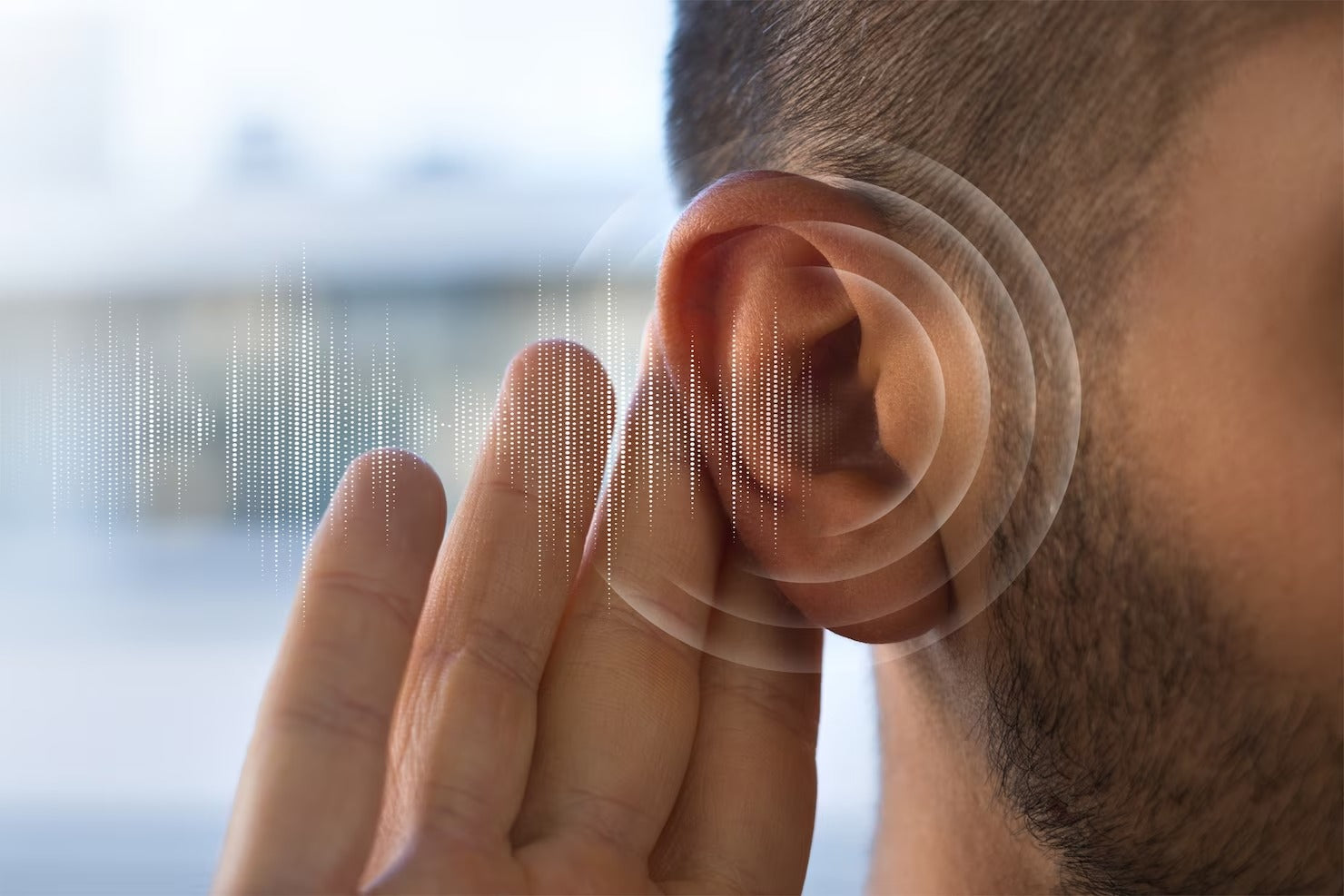The purchase of hearing aids may be a transformative experience and a start in the right direction toward improved auditory health for many people who are coping with hearing loss. Having said that, there is also the possibility of major cost repercussions. In light of this, it is of the utmost importance to investigate potential sources of monetary relief, such as the benefits offered by one's place of employment, the Children's Health Insurance Program (CHIP), the Department of Veterans Affairs (VA), state assistance programs for individuals with disabilities, the Affordable Care Act (ACA), and particular insurance providers. This essay will guide you through these important areas and give insights to help you better grasp the financial environment of hearing aids.
Hearing Aids and Other Benefits Offered by Employers
The provision of medical insurance is frequently included in the benefit packages offered by businesses. There is a possibility that some of these plans will also cover the expense of hearing aids, either in full or in part. It is essential to do a thorough examination of your benefits package or speak with a representative from human resources in order to acquire an understanding of the hearing-related charges that may be covered.
You may be able to get payment for hearing aids through workplace wellness programs or Flexible Spending Accounts (FSAs). These accounts enable you to put pre-tax cash towards qualified health costs, such as hearing aids and related services. In certain situations, hearing aids may be eligible for reimbursement through workplace wellness programs.
The Children's Health Insurance Program (CHIP) provides coverage for the children.
The Children's Health Insurance Program, often known as CHIP, is a program that is jointly sponsored by the federal government and the states. Its purpose is to provide medical coverage for children whose families earn too much to be eligible for Medicaid yet may have trouble affording private medical coverage. The Children's Health Insurance Program (CHIP) may or may not cover hearing aids in each state. Hearing tests, therapy, and hearing aids for children are all required to be covered by CHIP in some jurisdictions. However, other states may provide less extensive levels of coverage. As a result of this, parents should investigate the specifics of the CHIP program offered by their state to learn more about the hearing-related services that are covered under it.
Hearing Aids and the Veterans Affairs (VA) Department of Health and Human Services
Hearing aids are often provided to veterans by the Department of Veterans Affairs (VA) as part of the complete hearing healthcare services that are offered to them. Veterans typically need to have a handicap that was caused by their military service in order to qualify for benefits, however some conditions that are unrelated to military service can allow certain veterans to qualify. Veterans who are interested in receiving these benefits can get in touch with the VA institution in their area or speak with a healthcare practitioner affiliated with the VA to learn about their eligibility requirements and the scope of the coverage that is currently offered.
Programs of Assistance Provided by the State for Those Who Are Handicapped
There are assistance programs available for people with disabilities in many states. These programs may provide coverage for hearing aids and other services associated with hearing loss. The eligibility requirements for these programs frequently include age, particular disability criteria, or financial need. Because the scope of coverage and the standards for eligibility might vary greatly from state to state, it is essential to check with the department of health in your state or an organization that performs a similar function in order to investigate the availability of prospective help alternatives.
The Patient Protection and Affordable Care Act (ACA) as well as Hearing Aids
Although the Patient Protection and Affordable Care Act (ACA), more often referred to as Obamacare, increased the number of people who have access to health insurance, the law does not mandate that adult insurance policies include hearing aids. However, the Affordable Care Act mandates that insurance plans for children younger than 19 years old must provide coverage for diagnostic hearing tests and, in certain instances, habilitative treatments. These services may include the use of assistive listening devices.
If you are currently registered in or thinking about enrolling in an Affordable Care Act plan, it is in your best interest to investigate this option. Some state health insurance markets may provide adult policies that voluntarily include hearing aid coverage.
Providers of Hearing Aids and Health Insurance
Hearing aids are covered by private insurance to varying degrees, with some policies giving large benefits while others do not provide any coverage at all. There are certain insurance companies that will pay for both the audiologic evaluation as well as the hearing aids themselves, while there are other insurance companies that will just pay for the audiologic test. Some may even offer a monetary contribution that may be put toward the cost of purchasing hearing aids.
For this reason, it is very necessary to either do an in-depth analysis of the policy that comes with your insurance plan or to have a direct conversation with a representative from your insurance provider regarding the scope of your coverage. Hearing aides can be expensive, but there are a number of non-profit organizations and charities that offer financial support or cheap hearing devices to anyone who qualify for their programs. These can also be helpful resources.
In conclusion, the initial expenses of hearing aids might be considerable; however, financial assistance is available via a variety of channels, including employer benefits, the Children's Health Insurance Program (CHIP), the Veterans Administration (VA), state assistance programs, the Affordable Care Act (ACA), and specialized insurance carriers. To have a better grasp on your entitlements, you should do as much research as you can on the available choices and talk to the appropriate government agencies, departments, or representatives. Keep in mind that having access to better hearing should not be considered a luxury but rather an attainable aim for everyone who has the need for it.
Hearing Aids and Other Benefits Offered by Employers
The provision of medical insurance is frequently included in the benefit packages offered by businesses. There is a possibility that some of these plans will also cover the expense of hearing aids, either in full or in part. It is essential to do a thorough examination of your benefits package or speak with a representative from human resources in order to acquire an understanding of the hearing-related charges that may be covered.
You may be able to get payment for hearing aids through workplace wellness programs or Flexible Spending Accounts (FSAs). These accounts enable you to put pre-tax cash towards qualified health costs, such as hearing aids and related services. In certain situations, hearing aids may be eligible for reimbursement through workplace wellness programs.
The Children's Health Insurance Program (CHIP) provides coverage for the children.
The Children's Health Insurance Program, often known as CHIP, is a program that is jointly sponsored by the federal government and the states. Its purpose is to provide medical coverage for children whose families earn too much to be eligible for Medicaid yet may have trouble affording private medical coverage. The Children's Health Insurance Program (CHIP) may or may not cover hearing aids in each state. Hearing tests, therapy, and hearing aids for children are all required to be covered by CHIP in some jurisdictions. However, other states may provide less extensive levels of coverage. As a result of this, parents should investigate the specifics of the CHIP program offered by their state to learn more about the hearing-related services that are covered under it.
Hearing Aids and the Veterans Affairs (VA) Department of Health and Human Services
Hearing aids are often provided to veterans by the Department of Veterans Affairs (VA) as part of the complete hearing healthcare services that are offered to them. Veterans typically need to have a handicap that was caused by their military service in order to qualify for benefits, however some conditions that are unrelated to military service can allow certain veterans to qualify. Veterans who are interested in receiving these benefits can get in touch with the VA institution in their area or speak with a healthcare practitioner affiliated with the VA to learn about their eligibility requirements and the scope of the coverage that is currently offered.
Programs of Assistance Provided by the State for Those Who Are Handicapped
There are assistance programs available for people with disabilities in many states. These programs may provide coverage for hearing aids and other services associated with hearing loss. The eligibility requirements for these programs frequently include age, particular disability criteria, or financial need. Because the scope of coverage and the standards for eligibility might vary greatly from state to state, it is essential to check with the department of health in your state or an organization that performs a similar function in order to investigate the availability of prospective help alternatives.
The Patient Protection and Affordable Care Act (ACA) as well as Hearing Aids
Although the Patient Protection and Affordable Care Act (ACA), more often referred to as Obamacare, increased the number of people who have access to health insurance, the law does not mandate that adult insurance policies include hearing aids. However, the Affordable Care Act mandates that insurance plans for children younger than 19 years old must provide coverage for diagnostic hearing tests and, in certain instances, habilitative treatments. These services may include the use of assistive listening devices.
If you are currently registered in or thinking about enrolling in an Affordable Care Act plan, it is in your best interest to investigate this option. Some state health insurance markets may provide adult policies that voluntarily include hearing aid coverage.
Providers of Hearing Aids and Health Insurance
Hearing aids are covered by private insurance to varying degrees, with some policies giving large benefits while others do not provide any coverage at all. There are certain insurance companies that will pay for both the audiologic evaluation as well as the hearing aids themselves, while there are other insurance companies that will just pay for the audiologic test. Some may even offer a monetary contribution that may be put toward the cost of purchasing hearing aids.
For this reason, it is very necessary to either do an in-depth analysis of the policy that comes with your insurance plan or to have a direct conversation with a representative from your insurance provider regarding the scope of your coverage. Hearing aides can be expensive, but there are a number of non-profit organizations and charities that offer financial support or cheap hearing devices to anyone who qualify for their programs. These can also be helpful resources.
In conclusion, the initial expenses of hearing aids might be considerable; however, financial assistance is available via a variety of channels, including employer benefits, the Children's Health Insurance Program (CHIP), the Veterans Administration (VA), state assistance programs, the Affordable Care Act (ACA), and specialized insurance carriers. To have a better grasp on your entitlements, you should do as much research as you can on the available choices and talk to the appropriate government agencies, departments, or representatives. Keep in mind that having access to better hearing should not be considered a luxury but rather an attainable aim for everyone who has the need for it.


